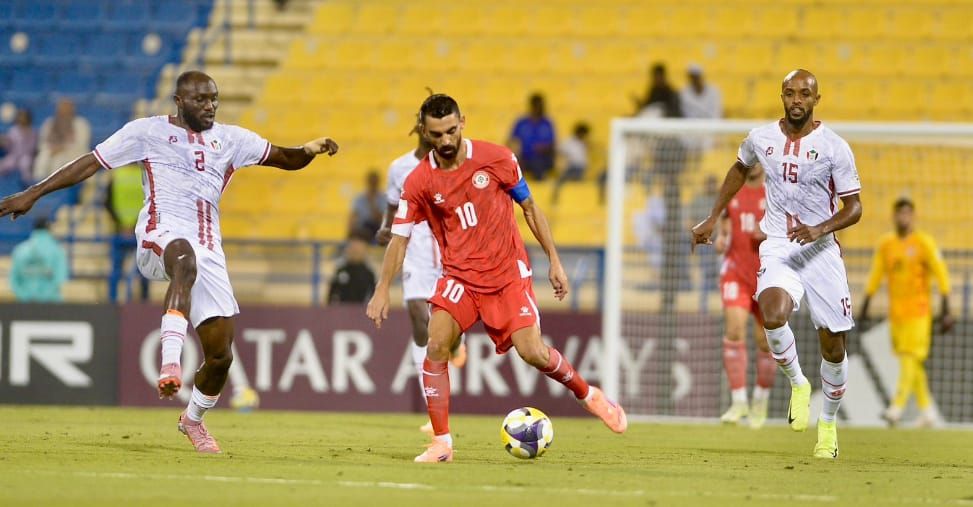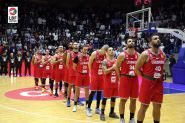
No one will be able to say the context wasn’t favorable. In Doha, on the pitch of the Thani bin Jassim Stadium, in front of 20,816 spectators and under the eyes of Gianni Infantino and Lebanese FA president Hachem Haidar, Lebanon played more than an hour with eleven men against ten… only to lose 2–1 to Sudan and crash out of the 2025 Arab Cup qualifiers. A massive missed opportunity — and a performance that leaves a bitter aftertaste.
A dream scenario turned into a wasted ticket
Everything had started perfectly for the Cedars. Sudan’s John Mano was sent off in the 23rd minute after two yellow cards, while Lebanon simultaneously lost Hussein Sharafeddine to a muscle injury, replaced by Kassem El Zein. Despite this defensive blow, Lebanon took a logical lead: from a pinpoint cross by Mohamad Safwan, Khalil Khamis capitalized on a poor exit by goalkeeper Monjed Al Nil to tap the ball in (30’, 1–0).
With the numerical advantage and the score in their favor, Mostafa Matar and his teammates seemed in control. But, as so often happens, one detail flipped the script. Just before the break, on a Sudanese corner, a poorly cleared ball dropped to Mostafa Khorshom, whose shot — deflected by Mohamad Haidar — ended up in the net (42’, 1–1). A cruel own goal that completely revived a Sudanese side running on fumes but lifted by momentum.
Ideas run dry
At halftime, one expected a strong response from Lebanon — a pressing, dominant unit ready to use its extra man and the quality of its attackers: Samy Merhej, Malek Fakhro, Khoder Kaddour, later joined by Gabriel Bitar and Ali Kassas.
Instead, Lebanon looked toothless, unable to change tempo, to attack centrally before spreading wide, or to break down a compact Sudanese block that defended smartly, slowed the game, and disrupted rhythm whenever necessary.
Yasser Goubak delivers the Sudanese dagger
Worse still, it was the “Falcons of Jdayn” who struck the killer blow. On a central counterattack, Yasser Goubak found himself one-on-one with Mostafa Matar: the Lebanese keeper’s initial save wasn’t enough, and the rebound rolled into the goal (73’, 2–1).
From then on, Lebanon pushed more with heart than with ideas. Crosses flew in, long-range shots multiplied, but Al Nil stood tall — especially on a last-minute header from Khalil Khamis.
At the final whistle, the scoreboard remained unchanged: 2–1 to Sudan, who advance into a tough group with Algeria, Iraq, and Bahrain. Lebanon stays behind, eliminated in a scenario that, on paper, should have been ideal: a one-goal lead, a man up, and a stadium largely cheering for them.
The names are there — Mostafa Matar, Hussein Zein, Walid Shour, Mohamad Haidar, Ahmad Kheireddine, Samy Merhej, Malek Fakhro, Khoder Kaddour, plus substitutes Ali Kassas, Gabriel Bitar, Hussein Ezzeddine, and Omar Chaaban — but the impression remains of a team still struggling to live up to its potential, to finish off matches, and to manage key moments.
A brutal reminder before future challenges: at international level, talent is never enough — especially when you fail to capitalize on such a glaring numerical advantage.




Comments